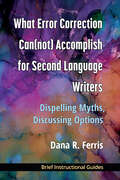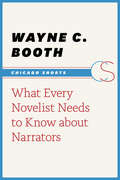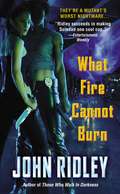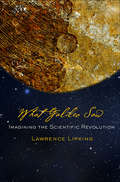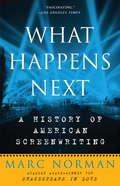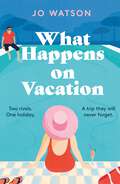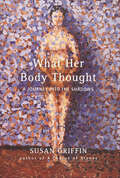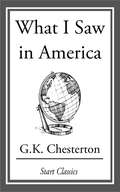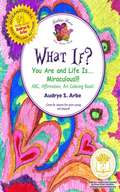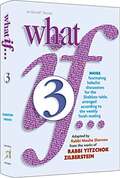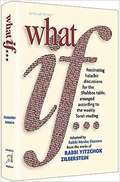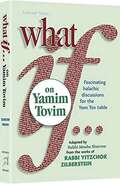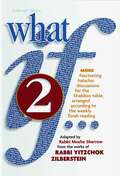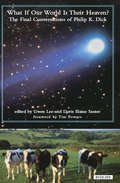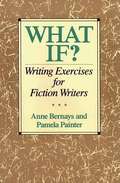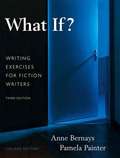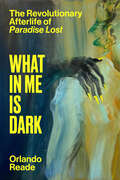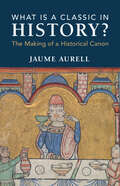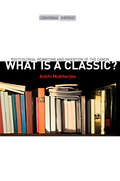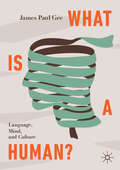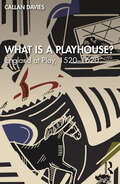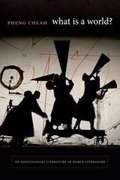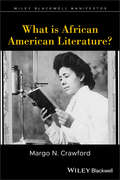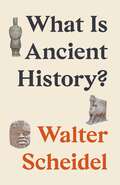- Table View
- List View
What Error Correction Can(not) Accomplish for Second Language Writers: DIspelling Myths, Discussing Options
by Dana R. Ferris"I took a powerful lesson away from that first classroom experience, one that has shaped my subsequent teaching of L2 composition, my teacher training, my research, and my writing: It is simply not possible to get a whole class of student writers from Point A (wherever they start out) to Point B (perfect, error-free papers) by the end of one writing course." ---Dana R. Ferris This content has been updated and expanded upon since originally appearing as Myth 5 in Writing Myths: Applying Second Language Research to Classroom Teaching, edited by Joy Reid, in 2008. This BEST OF MICHIGAN ELT ebook covers three aspects of L2 research that influence error correction: Second language acquisition takes time. Second language writers' texts are different from those written by native English speakers. Even diligent teacher correction and student editing does not lead to perfect, error-free texts. In clear and simple terms, Ferris makes six suggestions for things teachers can do in the classroom regarding error correction and provides samples. Three detailed appendixes complement this discussion. The book closes by addressing the basic principles of developing students' language skills in second language/ESL writing classes. Other issues regarding the expectations of students and others--such as in timed (high-stakes) situations--as it relates to "perfect" papers are examined.
What Every Novelist Needs to Know about Narrators
by Wayne C. BoothWayne Booth transformed the study of fiction in the twentieth century and wrote some of the most influential and engaging criticism of our time. In What Every Novelist Needs to Know about Narrators, Booth tackles one of the most difficult issues writers of fiction face: the choice of which narrative approach to take in their work. With trademark Booth aplomb, he articulates the methods behind dramatization, character development, and point of view that are indispensable for successful writing. How far the narrator sees, how she or he thinks, and how those thoughts connect with--or diverge from--those of the reader, writer, or other characters in the story: these are tools that are key to narration, and here Booth considers them in this worthy selection.
What Fire Cannot Burn
by John RidleyThe bestselling author of "Those Who Walk in Darkness" delivers the second book of his action-packed series, featuring top LAPD mutant-hunter Soledad O'Roark, who teams up with rival Eddi Aoki when a vigilante starts killing metanormals without mercy. Original.
What Galileo Saw: Imagining the Scientific Revolution
by Lawrence LipkingThe Scientific Revolution of the seventeenth century has often been called a decisive turning point in human history. It represents, for good or ill, the birth of modern science and modern ways of viewing the world. In What Galileo Saw, Lawrence Lipking offers a new perspective on how to understand what happened then, arguing that artistic imagination and creativity as much as rational thought played a critical role in creating new visions of science and in shaping stories about eye-opening discoveries in cosmology, natural history, engineering, and the life sciences. When Galileo saw the face of the Moon and the moons of Jupiter, Lipking writes, he had to picture a cosmos that could account for them. Kepler thought his geometry could open a window into the mind of God. Francis Bacon's natural history envisioned an order of things that would replace the illusions of language with solid evidence and transform notions of life and death. Descartes designed a hypothetical "Book of Nature" to explain how everything in the universe was constructed. Thomas Browne reconceived the boundaries of truth and error. Robert Hooke, like Leonardo, was both researcher and artist; his schemes illuminate the microscopic and the macrocosmic. And when Isaac Newton imagined nature as a coherent and comprehensive mathematical system, he redefined the goals of science and the meaning of genius. What Galileo Saw bridges the divide between science and art; it brings together Galileo and Milton, Bacon and Shakespeare. Lipking enters the minds and the workshops where the Scientific Revolution was fashioned, drawing on art, literature, and the history of science to reimagine how perceptions about the world and human life could change so drastically, and change forever.
What Happens Next: A History of American Screenwriting
by Marc NormanShakespeare in Love screenwriter Norman offers a history of his Hollywood predecessors and contemporaries, the famously despised screenwriters. Stories include the fallout of the McCarthy-era blacklists, the introduction of the Production Code and writers' attempts to outsmart the censors, the disappointment of director Billy Wilder upon hiring master crime novelist Raymond Chandler to script Double Indemnity (later nominated for a Best Screenplay Oscar), and the redefining of screenwriting by the likes of Quentin Tarantino and Charlie Kaufman. Annotation ©2008 Book News, Inc. , Portland, OR (booknews. com)
What Happens On Vacation: The brand-new enemies-to-lovers rom-com you won't want to go on holiday without!
by Jo WatsonTwo rivals. One holiday. A trip they will never forget.Jo Watson returns with a hilarious and heartfelt new enemies-to-lovers, forced-proximity rom-com! It's the book you won't want to go on holiday without! Perfect for fans of Emily Henry, Beth O'Leary and Christina Lauren..........................................Journalist Margaret needs a vacation. After a difficult couple of years, some R&R is on the cards, and she's taking her mom with her. Luckily, the office Quiz Night is coming up and the prize is an all-expenses-paid trip to Zanzibar. Good thing Margaret has never met a quiz question she didn't like. But Margaret has also never played against Jagger Villain. For the last six months, they have shared a desk and not a day has gone by when he hasn't driven her to distraction. The idea of sharing anything else with Jagger is unthinkable. But if she's going get what she needs from this trip, Margaret might have to compromise. Away from the office and in a tropical paradise, Margaret beings to wonder if her archnemesis maybe has some qualities. Could the holiday from hell turn into the vacation of her dreams? .........................................Love funny, romantic stories? You don't want to miss Jo Watson:'The perfect choice for fans of romantic comedies' Gina's Bookshelf'It was amazing, it was hilarious' Rachel's Random Reads'A brilliant read from beginning to end' Hopeless Romantics'Sitting here open mouthed in disbelief at just how wonderful this book is' Rachel's Random Reads'A stunning heart-warming read' Donna's Book Blog
What Her Body Thought: A Journey Into the Shadows
by Susan GriffinIn this boldly intimate and intelligent blend of personal memoir, social history, and cultural criticism, Susan Griffin profoundly illuminates our understanding of illness. She explores its physical, emotional, spiritual, and social aspects, revealing how it magnifies our yearning for connection and reconciliation.Griffin begins with a gripping account of her own harrowing experiences with Chronic Fatigue and Immune Dysfunction Syndrome (CFIDS), a potentially life-threatening illness that has been misconstrued and marginalized through the label "psychosomatic." Faced with terrifying bouts of fatigue, pain, and diminished thinking, the shame of illness, and the difficulty of being told you are "not really ill," she was driven to understand how early childhood loss made her susceptible to disease.Alongside her own story, Griffin weaves in her fascinating interpretation of the story of Marie du Plessis, popularized as the fictional Camille, an eighteenth-century courtesan whose young life was taken by tuberculosis. In the old story, Griffin finds contemporary themes of "money, bills, creditors, class, social standing, who is acceptable and who not, who is to be protected and who abandoned." In our current economy, she sees "how to be sick can impoverish, how poverty increases the misery of sickness, and how the implicit violence of this process wounds the soul as well as the body."Griffin insists that we must tell our stories to maintain our own integrity and authority, so that the sources of suffering become visible and validated. She writes passionately of a society where we are all cared for through "the rootedness of our connections. How the wound of being allowed to suffer points to a need to meet at the deepest level, to make an exchange at the nadir of life and death, the giving and taking which will weave a more spacious fabric of existence, communitas, community." Her views of the larger problems of illness and society are deeply illuminating.
What I Saw in America
by G. K. ChestertonJournalist, novelist, poet, artist and art critic, essayist, theologian, propagandist, philosopher, and creator of the wily old Father Brown - G. K. Chesterton is one of the most beguiling authors of the early twentieth century. When asked to perform a lecture tour in 1921, Chesterton was in a slump of depression. He had recently lost his brother to the First World War and his wavering faith in the face of the horrors of the conflict only intensified his malaise. 'What I Saw in America' tells us as much about the author and his particular views as it does about his destination. Indeed, Chesterton's personalised observations - his aversion to imperialism, capitalism, Anglo-Americanism and his commitment to democracy and fraternity - are distinguished by the piercing wit for which he is famed. Many of Chesterton's reflections are timeless and startlingly prescient. He was highly critical of both the naive immigration policies and the grinding dehumanisation brought about by the growth of the economy. Nonetheless, he was enthralled by the glorious ideals of the nation - founded on principles of equality, democracy and freedom - even if the essence of these ideals had been lost somewhere along the way. 'What I Saw in America' ranks among the finest of Chesterton's works, containing all of the author's virtues and vices: his wry humour, sympathy and intelligence playing devilishly against an irrepressible mischievousness.
WHAT IF?: You Are and Life Is Miraculous! ABC, Affirmation, Art Coloring Book
by Audrye S. ArbeWHAT IF? YOU ARE AND LIFE IS MIRACULOUS!, ABC, Affirmation, Art Coloring Book, printed on 100 percent post-consumer recycled paper, is ready for you! Great for anyone five years young and beyond, this book transforms and uplifts the reader's vibration, intrigues and piques the intellect with outstanding words, plus leads to brain-enhancement with its multi-perspective Audrye OmArt: Art That Opens the Heart (c). Coloring is the new meditation, hailed by psychologists as a way to uplift depression, help those in recovery, and, this book in particular, bring forth gales of laughter. Children, adolescents, teens, and adults love this book! Each run benefits the planet, as well, as testified to by www.GreenPressInitiative.org in the book itself.
What If?: Twenty-Two Scenarios in Search of Images
by Vilém FlusserAn imagination of possibilities, of miscalculations, of futures off-kilter &“Probability is a chimera, its head is true, its tail a suggestion. Futurologists attempt to compel the head to eat the tail (ouroboros). Here, though, we will try to wag the tail.&” —Vilém Flusser Two years after his Vampyroteuthis Infernalis, the philosopher Vilém Flusser engaged in another thought experiment: a collection of twenty-two &“scenarios for the future&” to be produced as computer-generated media, or technical images, that would break the imaginative logjam in conceiving the social, political, and economic future of the universe. What If? is not just an &“impossible journey&” to which Flusser invites us in the first scenario; it functions also as a distorting mirror held up to humanity. Flusser&’s disarming scenarios of an Anthropocene fraught with nightmares offer new visions that range from the scientific to the fantastic to the playful and whimsical. Each essay reflects our present sense of understanding the world, considering the exploitation of nature and the dangers of global warming, overpopulation, and blind reliance on the promises of scientific knowledge and invention. What If? offers insight into the radical futures of a slipstream Anthropocene that have much to do with speculative fiction, with Flusser&’s concept of design as &“crafty&” or slippery, and with art and the immense creative potential of failure versus reasonable, &“good&” computing or calculability. As such, the book is both a warning and a nudge to imagine what we may yet become and be.
What if…?: More Fascinating Halachic Discussions for the Shabbos Table, Arranged According to the Weekly Torah Reading (What If…? #3)
by Moshe SherrowWhat if... ...a man needs to take a sleep test, but it will mean missing zeman Kriyas Shema? ...a candy thrown during an aufruf misses the chasan and breaks the gabbai's glasses? ...someone takes out his neighbor's garbage, but there was jewelry in the trash bag? <P><p>Tens of thousands of readers have made the What If? series a staple at their Shabbos table. Based on the popular Hebrew-language series Chashukei Chemed, written by noted rav and posek, Rav Yitzchok Zilberstein shlita, and translated and arranged in the order of the weekly parashah by Rabbi Moshe Sherrow, What If? includes hundreds of real-life halachic questions, each accompanied by a brief, practical scenario to illustrate the case, and an analysis that is understandable and easy to follow. <p><p>What If? 3 continues the stimulating Torah conversation, with more fascinating halachic questions and scenarios. What If... ...your Shabbos table conversation flowed as freely as fine wine? ...your children sat at Shabbos dinner, engaged and enthusiastic by the Torah discussion? ...your guests enjoyed the conversation as much—and even more—as they enjoyed your chulent? What If? 3—The Torah conversation continues!
What If…?: Fascinating Halachic Discussions for the Shabbos Table, Arranged According to the Weekly Torah Reading
by Moshe SherrowWhat If... makes a wonderful addition to our Shabbos table. Rav Yitzchok Zilberstein shlita is a noted rav and posek, as well as a son-in-law of Rav Elyashiv zt'l. <p><p>What If... presents hundreds of halachic questions and answers in the order of the weekly parashah, making it the perfect starting point for fascinating Torah conversations. The questions are short, and each includes a practical, real-world scenario. The answers, too, are concise, and though they contain a world of Torah knowledge, they are easy to follow. <p><p>A man jokingly tells his friend to microwave an esrog to make it ripen quickly - who is responsible for the damage? A surgeon learns a new technique from a presentation, without paying the entrance fee. May he use that technique, or is it stealing? A mother doesn't want to reveal her child's illness, thus keeping people from praying for him. Is that permitted? <p><p>Challenge your family or guests with these thought-provoking halachic questions, and watch the energy around the table begin to surge. This is Torah conversation at its best.
What If: Fascinating Halachic Discussions for the Yom Tov Table
by Moshe SherrowYou love it at your Shabbos table. Now you can enjoy What If? on all the Jewish holidays! <p><p>It is Rosh Hashanah. A man holding a shofar is going to blow it for a sick friend. A car pulls up and the driver says, “I'm Jewish. Would you mind blowing that shofar for me? Should he blow the shofar while yom tov is clearly being desecrated? <p><p>Boaz built a huge succah for his restaurant—and now patrons of other kosher eateries are using it, and his own customers have to wait. Can he ask the others to leave? <p><p>A pre-Pesach food drive is hurting local groceries. Can the merchants demand that the food distribution be stopped? <p><p>The bestselling and beloved What If? series has become a welcome staple at our Shabbos tables. Based on the popular Hebrew-language series Chashukei Chemed, written by noted rav and posek Rav Yitzchok Zilberstein shlita, and translated and arranged by Rabbi Moshe Sherrow, every volume in the What If? series includes hundreds of real-life halachic questions, each accompanied by a brief, practical scenario to illustrate the case, and an answer that is understandable and easy to follow. Make your holiday table extra-special with the great conversation starter, What If on Yamim Tovim.
What If 2: More Fascinating Halachic Discussions for the Shabbos Table, Arranged According to the Weekly Torah Reading
by Moshe SherrowWhat if... <p><p> ...a mohel is running late, and the bris will not be performed on time unless he breaks the speed limit on a major highway? <p><p> ...a person buys a hat, and the "cashier" turns out to be a thief who had simply sat at the cash register - does he have to pay the store again? <p><p> ...a man hired to say Kaddish does so faithfully, and finds out at the end of eleven months that he's gotten the name of the deceased wrong? <p><p> These are all true stories. All real-life halachic questions. And all absolutely fascinating. <p><p> Jews the world over have discovered the perfect conversation-starter at their Shabbos table: What If? Based on the popular Hebrew-language series Chashukei Chemed, written by noted rav and posek, Rav Yitzchok Zilberstein shlita, and translated and arranged in the order of the weekly parashah by Rabbi Moshe Sherrow, What If? includes hundreds of real-life halachic questions, each accompanied by a brief, practical scenario to illustrate the case, and an analysis that is understandable and easy to follow. <p><p> What If? garnered immense acclaim because it reaches people of all ages and backgrounds. The queries, stories, and halachic explanations are clear and simple, so that even youngsters can discuss them (and guess at the answers - a sure conversation starter!). At the same time these fascinating halachic questions and responses hold the interest of those well-versed in Torah scholarship. <p><p> Since its publication, What If? has become a beloved guest at thousands of Shabbos tables - and readers have been clamoring for more. What If? Volume 2 continues the Torah conversation, with still more unusual and engrossing questions and cases. <p><p> Let the conversation at your Shabbos table flow as smoothly as fine wine, with What If? Volume 2.
What If Our World Is Their Heaven?: The Final Conversations of Philip K. Dick
by Philip K. Dick, Gwen Lee, and Doris Elaine SauterInterviews with the genius behind The Man in the High Castle and countless other science fiction classics. In the field of science fiction, Philip K. Dick is unparalleled. His novel Do Androids Dream of Electric Sheep? became the classic film Blade Runner. His short story &“The Minority Report&” was adapted for the screen by Steven Spielberg. The Man in the High Castle has become a hit series on Amazon, and those titles represent only a small fraction of his work. In November 1982, six months before the author&’s untimely death, journalist Gwen Lee recorded the first of several in-depth discussions with Philip K. Dick that continued over the course of the next three months. This transcription is a fascinating read for anyone interested in the field of science fiction. &“These transcripts bring fresh insights—notably, into the imaginative biotech plot line of the unwritten The Owl in Daylight . . . Dick also discusses music, writing, philosophers and his 1974–1975 mystical visions, when the revelation of his son&’s undiagnosed birth defect—&‘down to anatomical details&’—saved the child&’s life . . . Fans will rejoice.&” —Publishers Weekly
What If? Writing Exercises for Fiction Writers (1st edition)
by Anne Bernays Pamela PainterA handbook for writers based on the idea that specific exercises are one of the most useful and provocative methods of mastering the art of fiction writing
What If? Writing Exercises for Fiction Writers (College Edition, 3rd Edition)
by Anne Bernays Pamela PainterThis book is comprised primarily of exercises introduced by brief but informative essays on the aspects of fiction. This text provides a practical, hands-on approach to writing fiction. Organized by the elements of fiction and concluded by an anthology of contemporary fiction, this book helps all fiction writers hone and improve their craft.
What in Me Is Dark: The Revolutionary Afterlife of Paradise Lost
by Orlando ReadeA highly original hybrid of literary criticism and political history, telling of the enduring, surprising and ever-evolving relevance of Milton&’s epic poem through the scandalous life of its creator and the revolutionary lives that were influenced by it.What in Me Is Dark tells the unlikely story of how Milton&’s epic poem came to haunt political struggles over the past four centuries, including the many different, unexpected, often contradictory ways in which it has been read, interpreted, and appropriated through time and across the world, and to revolutionary ends. The book focuses on twelve readers—including Malcolm X, Thomas Jefferson, George Eliot, Hannah Arendt, and C.L.R James—whose lives demonstrate extraordinary and disturbing influence on the modern age.Drawing from his own experiences teaching Paradise Lost in New Jersey prisons, English scholar Orlando Reade deftly investigates how the poem was read by people embedded in struggles against tyranny, slavery, colonialism, gender inequality, and capitalist exploitation. It is experimental nonfiction at its finest; rich literary analysis and social, cultural and political history are woven together to make a clarifying case for the undeniable impact of the poem.
What Is a Classic in History?: The Making of a Historical Canon
by Jaume AurellWhat is a classic in historical writing? How do we explain the continued interest in certain historical texts, even when their accounts and interpretations of particular periods have been displaced or revised by newer generations of historians? How do these texts help to maintain the historiographical canon? Jaume Aurell's innovative study ranges from the heroic writings of ancient Greek historians such as Herodotus to the twentieth century microhistories of Carlo Ginzburg. The book explores how certain texts have been able to stand the test of time, gain their status as historiographical classics, and capture the imaginations of readers across generations. Investigating the processes of permanence and change in both historiography and history, Aurell further examines the creation of historical genres and canons. Taking influence from methodologies including sociology, literary criticism, theology, and postcolonial studies, What Is a Classic in History? encourages readers to re-evaluate their ideas of history and historiography alike.
What Is a Classic? Postcolonial Rewriting and Invention of the Canon
by Ankhi MukherjeeWhat Is a Classic? revisits the famous question posed by critics from Sainte-Beuve and T. S. Eliot to J. M. Coetzee to ask how classics emanate from postcolonial histories and societies. Exploring definitive trends in twentieth- and twenty-first century English and Anglophone literature, Mukherjee demonstrates the relevance of the question of the classic for the global politics of identifying and perpetuating so-called core texts. Emergent canons are scrutinized in the context of the wider cultural phenomena of book prizes, the translation and distribution of world literatures, and multimedia adaptations of world classics. Throughout, Mukherjee attunes traditional literary critical concerns to the value contestations mobilizing postcolonial and world literature. The breadth of debates and topics she addresses, as well as the book's ambitious historical schema, which includes South Asia, Africa, the Middle East, the West Indies, Australia, New Zealand, Europe, and North America, set this study apart from related titles on the bookshelf today.
What Is a Human?: Language, Mind, and Culture
by James Paul GeeIn a sweeping synthesis of new research in a number of different disciplines, this book argues that we humans are not who we think we are. As he explores the interconnections between cutting-edge work in bioanthropology, evolutionary biology, neuroscience, human language and learning, and beyond, James Paul Gee advances, also, a personal philosophy of language, learning, and culture, informed by his decades of work across linguistics and the social sciences. Gee argues that our schools, institutions, legal systems, and societies are designed for creatures that do not exist, thus resulting in multiple, interacting crises, such as climate change, failing institutions, and the rise of nationalist nationalism. As Gee constructs an understanding of the human that takes into account our social, collective, and historical nature, as established by recent research, he inspires readers to reflect for themselves on the very question of who we are—a key consideration for anyone interested in society, government, schools, health, activism, culture and diversity, or even just survival.
What is a Playhouse?: England at Play, 1520–1620
by Callan DaviesThis book offers an accessible introduction to England’s sixteenth- and early seventeenth-century playing industry and a fresh account of the architecture, multiple uses, communities, crowds, and proprietors of playhouses. It builds on recent scholarship and new documentary and archaeological discoveries to answer the questions: what did playhouses do, what did they look like, and how did they function? The book will accordingly introduce readers to a rich and exciting spectrum of "play" and playhouses, not only in London but also around England. The detailed but wide-ranging case studies examined here go beyond staged drama to explore early modern sport, gambling, music, drinking, and animal baiting; they recover the crucial influence of female playhouse owners and managers; and they recognise rich provincial performance cultures as well as the burgeoning of London’s theatre industry. This book will have wide appeal with readers across Shakespeare, early modern performance studies, theatre history, and social history.
What Is a World?: On Postcolonial Literature as World Literature
by Pheng CheahIn What Is a World? Pheng Cheah, a leading theorist of cosmopolitanism, offers the first critical consideration of world literature's cosmopolitan vocation. Addressing the failure of recent theories of world literature to inquire about the meaning of world, Cheah articulates a normative theory of literature's world-making power by creatively synthesizing four philosophical accounts of the world as a temporal process: idealism, Marxist materialism, phenomenology, and deconstruction. Literature opens worlds, he provocatively suggests, because it is a force of receptivity. Cheah compellingly argues for postcolonial literature's exemplarity as world literature through readings of narrative fiction by Michelle Cliff, Amitav Ghosh, Nuruddin Farah, Ninotchka Rosca, and Timothy Mo that show how these texts open up new possibilities for remaking the world by negotiating with the inhuman force that gives time and deploying alternative temporalities to resist capitalist globalization.
What is African American Literature? (Wiley-Blackwell Manifestos)
by Margo N. CrawfordAfter Kenneth W. Warren's What Was African American Literature?, Margo N. Crawford delivers What is African American Literature? The idea of African American literature may be much more than literature written by authors who identify as "Black". What is African American Literature? focuses on feeling as form in order to show that African American literature is an archive of feelings, a tradition of the tension between uncontainable black affect and rigid historical structure. Margo N. Crawford argues that textual production of affect (such as blush, vibration, shiver, twitch, and wink) reveals that African American literature keeps reimagining a black collective nervous system. Crawford foregrounds the "idea" of African American literature and uncovers the "black feeling world" co-created by writers and readers. Rejecting the notion that there are no formal lines separating African American literature and a broader American literary tradition, Crawford contends that the distinguishing feature of African American literature is a "moodscape" that is as stable as electricity. Presenting a fresh perspective on the affective atmosphere of African American literature, this compelling text frames central questions around the "idea" of African American literature, shows the limits of historicism in explaining the mood of African American literature and addresses textual production in the creation of the African American literary tradition. Part of the acclaimed Wiley Blackwell Manifestos series, What is African American Literature? is a significant addition to scholarship in the field. Professors and students of American literature, African American literature, and Black Studies will find this book an invaluable source of fresh perspectives and new insights on America's black literary tradition.
What Is Ancient History?
by Walter ScheidelFrom one of today&’s most innovative ancient historians, a provocative new vision of why ancient history matters—and why it needs to be told in a radically different, global wayIt&’s easy to think that ancient history is, well, ancient history—obsolete, irrelevant, unjustifiably focused on Greece and Rome, and at risk of extinction. In What Is Ancient History?, Walter Scheidel presents a compelling case for a new kind of ancient history—a global history that captures antiquity&’s pivotal role as a decisive phase in human development, one that provided the shared foundation of our world and continues to shape our lives today.For Scheidel, ancient history is when the earliest versions of today&’s ways of life were created and spread—from farming, mining, and engineering to housing and transportation, cities and government, writing and belief systems. Transforming the planet, this process unfolded all over the world, in Eurasia, Africa, and the Americas, often at different times, sometimes haltingly but ultimately unstoppably. Yet it&’s rarely studied or taught that way. Since the eighteenth century, Western intellectuals have dismembered the ancient world, driven not only by their quest for professional expertise but also by nationalism, colonialism, racism, and the idealization of Greece and Rome. Specialized scholarship has fractured into numerous academic niches, obscuring broader patterns and dynamics and keeping us from understanding just how much humanity has long had in common.The time has come, Scheidel argues, to put the ancient world back together—by moving beyond the limitations of Greco-Roman &“classics,&” by systematically comparing ancient societies, and by exploring early exchanges and connections between them. The time has come, in other words, for an ancient history for everyone.
